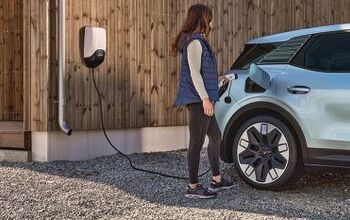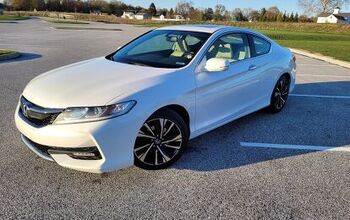On Again, Off Again: Volvo Aims to Get South Carolina Plant Back in Gear, but Something's Missing

Is there a U.S. assembly plant that’s not currently producing a utility vehicle that doesn’t need one? Perhaps, but that doesn’t describe Volvo Cars’ Ridgeville, South Carolina facility, which builds the new-for-2019 S60 sedan.
A still-shiny plant situated near Charleston’s busy harbor that only opened a year prior to the S60’s launch, the facility shuttered itself in late March as the coronavirus swept into North America, reopening in early May before going idle again a month later. Volvo Cars’ boss aims to get production underway again soon, but there’s a problem.
“First is the disturbances in the supply of parts from Mexico. But it also a supply-and-demand issue for the S60. There is definitely is a market trend toward SUVs,” CEO Hakan Samuelsson told Automotive News Europe this week.
The aim is to get the facility up and running within “some” weeks, Samuelsson said, but issues remain in the Mexico-U.S. supply chain. The country to the south has curbed manufacturing output to some degree in a bid to slow the spread of COVID-19 infections. In the state of Chihuahua, employee attendance is limited to just 50 percent of the normal complement — spelling headaches for certain domestic manufacturers.
Yet even if parts flow in from Mexico like they once used to, customers aren’t flowing into Volvo dealerships in search of a new sedan. U.S. customers purchased 17,526 S60s in 2019, but the first half of 2020 saw Volvo unload just 4,799 units. That’s a 43-percent decrease from the same period a year earlier.
While the pandemic can take responsibility for much of the slide, the public’s decreasing enthusiasm for any and all sedans can’t be ruled out as a causal factor. It’s not like inventory has entirely dried up. Luckily, the lonely S60 won’t have to remain in isolation for much longer.
“Charleston really needs an SUV, which we are planning to introduce in the second step in 2022 with the XC90,” Samuelsson said. “Then the factory will be fully utilized.”
The brand’s best-selling model by a significant margin, the XC90 saw its first-half sales drop only 13.3 percent, with June volume down barely half a percent. Worldwide, sedans sales account for 14 percent of Volvo’s sales volume, with SUVs gobbling up 69 percent of the pie.
[Images: Volvo Cars]

More by Steph Willems
Latest Car Reviews
Read moreLatest Product Reviews
Read moreRecent Comments
- Varezhka I have still yet to see a Malibu on the road that didn't have a rental sticker. So yeah, GM probably lost money on every one they sold but kept it to boost their CAFE numbers.I'm personally happy that I no longer have to dread being "upgraded" to a Maxima or a Malibu anymore. And thankfully Altima is also on its way out.
- Tassos Under incompetent, affirmative action hire Mary Barra, GM has been shooting itself in the foot on a daily basis.Whether the Malibu cancellation has been one of these shootings is NOT obvious at all.GM should be run as a PROFITABLE BUSINESS and NOT as an outfit that satisfies everybody and his mother in law's pet preferences.IF the Malibu was UNPROFITABLE, it SHOULD be canceled.More generally, if its SEGMENT is Unprofitable, and HALF the makers cancel their midsize sedans, not only will it lead to the SURVIVAL OF THE FITTEST ones, but the survivors will obviously be more profitable if the LOSERS were kept being produced and the SMALL PIE of midsize sedans would yield slim pickings for every participant.SO NO, I APPROVE of the demise of the unprofitable Malibu, and hope Nissan does the same to the Altima, Hyundai with the SOnata, Mazda with the Mazda 6, and as many others as it takes to make the REMAINING players, like the Excellent, sporty Accord and the Bulletproof Reliable, cheap to maintain CAMRY, more profitable and affordable.
- GregLocock Car companies can only really sell cars that people who are new car buyers will pay a profitable price for. As it turns out fewer and fewer new car buyers want sedans. Large sedans can be nice to drive, certainly, but the number of new car buyers (the only ones that matter in this discussion) are prepared to sacrifice steering and handling for more obvious things like passenger and cargo space, or even some attempt at off roading. We know US new car buyers don't really care about handling because they fell for FWD in large cars.
- Slavuta Why is everybody sweating? Like sedans? - go buy one. Better - 2. Let CRV/RAV rust on the dealer lot. I have 3 sedans on the driveway. My neighbor - 2. Neighbors on each of our other side - 8 SUVs.
- Theflyersfan With sedans, especially, I wonder how many of those sales are to rental fleets. With the exception of the Civic and Accord, there are still rows of sedans mixed in with the RAV4s at every airport rental lot. I doubt the breakdown in sales is publicly published, so who knows... GM isn't out of the sedan business - Cadillac exists and I can't believe I'm typing this but they are actually decent - and I think they are making a huge mistake, especially if there's an extended oil price hike (cough...Iran...cough) and people want smaller and hybrids. But if one is only tied to the quarterly shareholder reports and not trends and the big picture, bad decisions like this get made.



































Comments
Join the conversation
Southern California resident here, and I echo the sentiments about rear A/C vents. Looking at used S60 last year, those B pillar vents were part of a package. I don’t recall if they were even available on the lowest S60 trim. Try driving a dark grey or black Volvo to Palm Springs this weekend when it is 105 to 110 degrees, and then decide if rear A/C is a luxury or a necessity.
S60 US sales had risen by 148% from 2018 to 2019, bucking the long term sedan decline. But now having trouble with Covid on the sales floor and with supplies from Mexico, plus the declining sedan market. S60 sales should recover next year to an acceptable level, but will probably never be on fire like Volvo's SUVs.